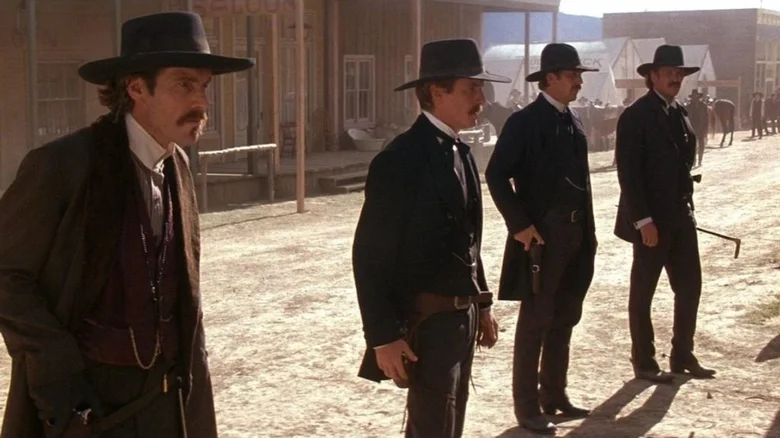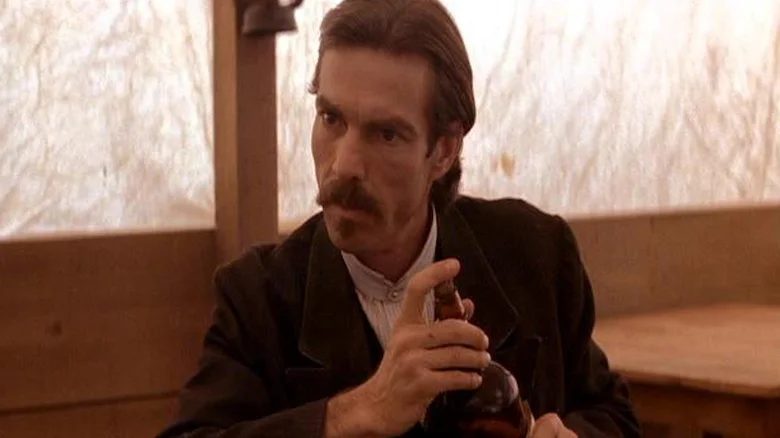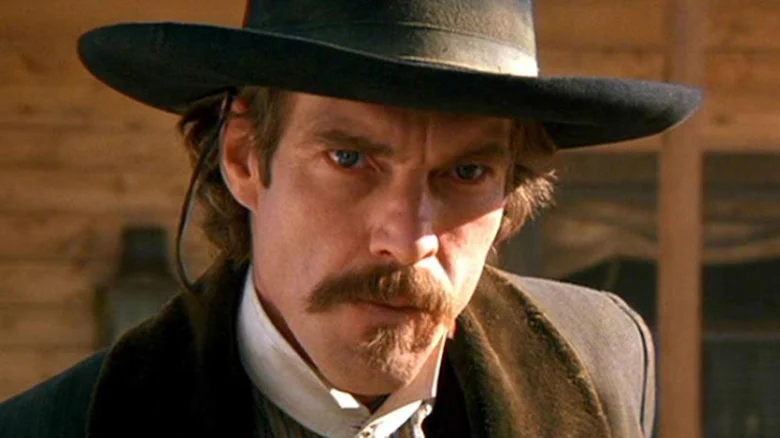Dennis Quaid spent the entirety of the 1980s on the cusp of movie stardom. He popped as a cocksure Indiana yokel in Peter Yates’ 1979 underdog drama “Breaking Away,” commencing a flirtation that bopped from Mercury Seven astronaut Gordon Cooper in “The Right Stuff” to corrupt New Orleans cop Remy McSwain in “The Big Easy” to The Killer himself, Jerry Lee Lewis, in “Great Balls of Fire.” Hollywood thought it knew what to do with Dennis Quaid, but the troublemaking Texan armed with a million-dollar grin had other ideas.
Quaid was cut from the same restless cloth as Jeff Bridges. He’s a movie star with an actor’s temperament. He could show up on set, hit his marks, flash that come-and-get-it smile and cash an eight-figure check, but in the prime of his career he sought out audience-unfriendly areas of discomfort via decidedly unheroic characters. He’s properly pathetic as a college football god who’s reduced to painfully-human mediocrity in “Everybody’s All-American,” and despicable as a drug-dispensing producer in “Postcards from the Edge.” Whereas a bona-fide matinee idol like Harrison Ford played aggressively against type as the terrifying Allie Fox in “The Mosquito Coast,” Quaid weaponized his charm. He dared us to not like him.
It was a nifty trick, but we eventually got wise to it. So he hurled us another curveball and went full-on method actor, dropping 40 pounds and completely disappearing as Doc Holliday in Lawrence Kasdan’s “Wyatt Earp.”
A figuratively and dangerously literal disappearing act

When Lawrence Kasdan found himself in a release-date footrace with Touchstone’s star-studded Wyatt Earp crowd-pleaser “Tombstone,” he hung back and finished his three-hour epic on his own time. Warner Bros. trusted the four-time Academy Award-nominated filmmaker of “The Big Chill” and “The Accidental Tourist” to deliver a superior take on the Wild West lawmaker’s life. The secret weapon of Kasdan’s film was Dennis Quaid, whose physical commitment to the part of Holliday smacked of Robert De Niro playing Jake LaMotta. It came at a horrible price.
As Quaid told The Scotsman in 2017:
“It affects your self image. I lost [42 pounds] for ‘Wyatt Earp’ and I was always thinking that I hadn’t done enough. But I look back at pictures and you could see my skull. I did it because Doc Holliday was a scrawny little guy, he had tuberculosis, and I wanted to get as close to him as I could. But you get into a way of eating and you’re counting your calories and it puts you in a way of thinking. It took me about two years to really get clear of it and gain the weight back.”
A masterful performance embedded in a muddled epic

Though the studio got the sweeping, Oscar-friendly version of the Earp tale they paid for (to the tune of $63 million), the refreshingly unpretentious “Tombstone” proved a hit with audiences, in large part due to Val Kilmer’s hugely sympathetic portrayal of Holliday. It had been nearly 50 years since Victor Mature gave us the defining take on the dentist-turned-gunfighter in John Ford’s “My Darling Clementine,” and Kilmer, who’d been scrambling plenty on his own as a movie star post-“The Doors,” reminded us why we loved him. The dialogue wasn’t fancy, but his delivery (particularly on “I’m your Huckleberry”) nailed down Holliday for a new generation.
Though Lawrence Kasdan hampered his cast by deciding to make an epic Western without having anything of interest to say, Dennis Quad wrote his own story with his portrayal, and his Holliday is so much more than a compendium of coughs and quips. It’s the soulful counterpart to Kilmer’s entertainingly hammy turn. Quaid’s Doc is a self-destructive enigma strangely determined to do something meaningful in this world before tuberculosis does what no outlaw could do. He’s dying on his own terms, and we’re happy to ride along as he completes his mystifying journey. It’s Quaid’s finest hour as an actor, and of course he knocked it out in a movie that almost no one has seen.
